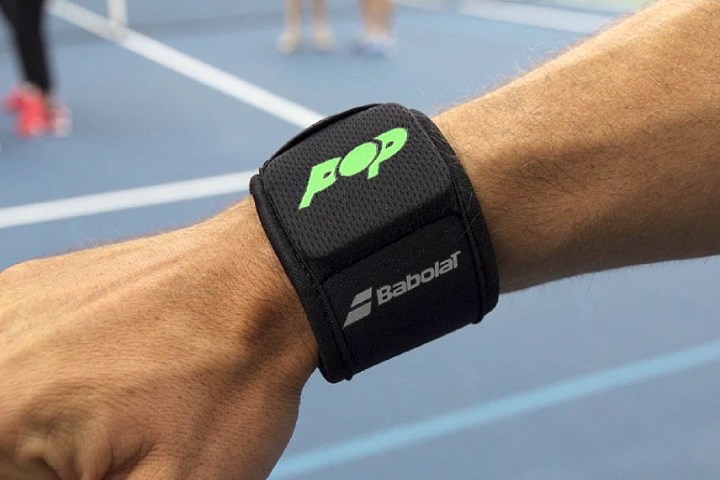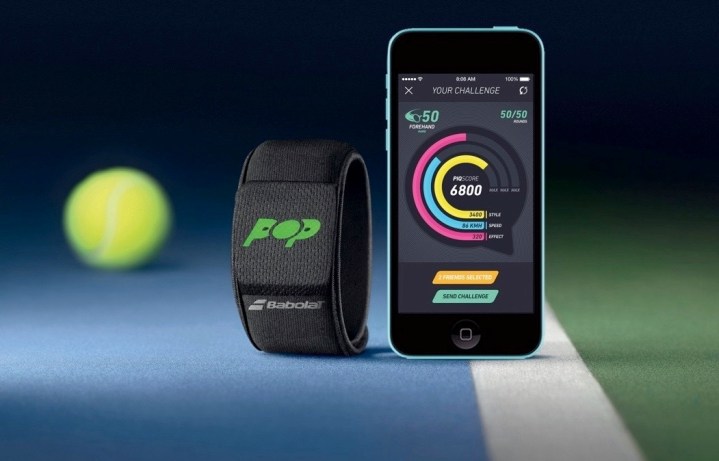
If you’re serious about your tennis, you may want to get hold of Babolat Pop, a sensor-packed smart wearable designed to track your game on the court, right down to its finer strokes. Looking like a regular wristband, the Babolat Pop sits on your dominant hand. Once there, it will track your activity during a tennis game, from basic metrics like the speed of your swing to more in-depth analysis of things like spin and style.
This information is then sent wirelessly to your connected smartphone or another mobile device, which allows you to break down the information stroke by stroke. While it won’t offer you detailed coaching tips, it will tell you about the consistency of your game — and provide enough numbers that the more competitive “quantified self” enthusiasts will have something to battle over.
The gadget was created by Babolat, a French tennis, badminton, and squash equipment company that dates back to 1875. Working with Babolat was the French tech company Piq, which has created smart sensor tech for a number of sports; Piq and Everlast built a boxing robot last year. Piq also built the world’s first connected ski.
The Babolat Pop actually launched a couple years back, but Babolat has continued to update the mobile app in the time since then. Its latest app update came out in February, adding a few bug fixes to improve the overall tennis experience.

The app boasts two main features: “Activity” and “Challenge.” The former tracks your court time, complete with the number of shots that you take. The latter meanwhile adds an extra gamified element (as if playing tennis wasn’t enough of a game!) by letting you compete with friends and other players around the world. You can even get your Piq score, a combined number made up of your various metrics, ranked in the global community.
Here in 2018, there are plenty of wearable sports trackers to choose from — with the market-leading Apple Watch Series 3 seemingly adding new sports by the day. If you’re looking for a good tennis-focused tracker, however, this smart device is definitely worth checking out. You might also want to check out sports sensor company Zepp’s Head Tennis Sensor for an alternative digital coach.
Editors' Recommendations
- I wore the Whoop 4.0 fitness tracker for a month. Here’s why I’m getting rid of it
- The app for your Garmin wearable is getting a huge overhaul
- Xiaomi’s newest wearables may make you want to ditch your Apple Watch
- Whoop 4.0 vs. Oura: Which screenless health tracker should you wear?
- You shouldn’t need an accountant to buy a new fitness tracker


